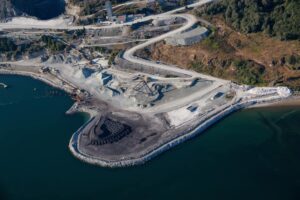Infrastructure development is vital for supporting economic growth and improving the quality of life in communities. From roads and bridges to water treatment plants and power facilities, infrastructure projects require careful planning and execution. This is where EPC (Engineering, Procurement, and Construction) services come into play. EPC services streamline the entire project lifecycle, from initial design to final construction, ensuring that projects are completed on time and within budget.
In this article, we will explore EPC services and their crucial role in infrastructure development. We will also explore the key benefits, outline the stages of an EPC project, and provide examples of infrastructure developments that have successfully utilized EPC services.
What Are EPC Services and Why Are They Important?
EPC stands for Engineering, Procurement, and Construction, and it represents a comprehensive project delivery method. In EPC projects, a single contractor handles all aspects of the project, from the initial engineering and design to the procurement of materials and the final construction. This approach ensures that the project is managed efficiently and cohesively, reducing the risks associated with miscommunication and delays.
One of the primary reasons EPC services are important is their ability to streamline complex projects. Handling everything under one umbrella allows for better coordination and communication among all parties involved. This leads to faster decision-making and problem-solving, which is crucial for meeting tight timelines and avoiding costly overruns.
Another crucial aspect is accountability. With a single point of contact responsible for every phase, there is a clear line of accountability. This means that the contractor is fully responsible for the quality, timeliness, and cost-effectiveness of the project. Clients have peace of mind knowing that one entity is handling all the details, ensuring a smooth and efficient process.
EPC services also bring the advantage of integrating advanced technologies and innovative solutions. With specialized engineering and procurement teams, we can implement cutting-edge designs and materials that enhance the functionality and lifespan of the infrastructure. This seamless integration of all phases makes EPC services crucial for the successful execution of infrastructure projects.
Key Benefits of EPC Services in Infrastructure Projects
EPC services offer numerous benefits that make them indispensable in infrastructure projects. One of the most significant advantages is the efficiency gained through streamlined processes. By having a single entity manage the entire project, we can eliminate the inefficiencies and delays that often occur when multiple contractors are involved. This leads to faster project completion and reduced costs.
Another key benefit is the improved quality control. With all aspects of the project being managed by one contractor, there is a consistent focus on maintaining high standards. This holistic approach ensures that every component of the project, from design to materials to construction techniques, meets the specified requirements. The result is a final product that is reliable and of high quality.
Cost savings are also a major advantage of the EPC model. By consolidating all services under one roof, we can leverage economies of scale and negotiate better terms with suppliers. This translates to reduced costs for materials and labour, making the project more financially viable.
The EPC approach also provides greater flexibility during the project lifecycle. Any changes or adjustments that need to be made can be implemented more easily when a single entity is overseeing the project. This adaptability is crucial for accommodating unforeseen challenges and opportunities that may arise.
Finally, EPC services enhance project safety. With coordinated planning and execution, safety protocols are more effectively implemented and monitored. This reduces the likelihood of accidents and ensures that the project complies with all relevant safety standards and regulations.
Overall, EPC services bring a host of benefits that contribute to the successful delivery of infrastructure projects, making them an ideal choice for complex developments.
Stages of an EPC Project: From Planning to Completion
An EPC project involves several well-defined stages, each critical to achieving a successful outcome. The first stage is the planning phase, during which initial designs and project requirements are determined. During this phase, we work closely with the client to understand their needs and objectives. Detailed feasibility studies and risk assessments are conducted to ensure that the project is viable and sustainable.
Next is the engineering phase, where detailed design work takes place. This includes creating blueprints, technical specifications, and engineering assessments. Advanced software and modelling tools are often used to optimize designs and ensure that all aspects of the project’s requirements are met. This stage sets the foundation for the subsequent phases, ensuring that all elements are thoroughly planned and accounted for.
The procurement phase follows, focusing on acquiring the necessary materials and equipment for the project. This involves working with suppliers to source high-quality materials at competitive prices. Efficient procurement is crucial for staying on budget and maintaining the project timeline.
The final phase is construction, where the actual building work is carried out. Coordinated by experienced project managers, this stage involves executing the plans developed in the earlier phases. Quality control is paramount to ensure that the construction meets the specified standards. Once construction is complete, comprehensive testing and inspections are conducted before the project is handed over to the client.
Examples of Infrastructure Developments Using EPC Services
EPC services have been instrumental in a wide range of infrastructure developments. A key example is the construction of wastewater treatment plants. These facilities require intricate planning and advanced engineering solutions to meet environmental standards and handle large volumes of waste efficiently. By utilizing EPC services, we can ensure that these plants are designed, procured, and built to the highest standards, offering long-term reliability and sustainability.
Another significant example is the development of transportation infrastructure, such as bridges and highways. These projects often involve complex engineering challenges, including the need to minimize disruptions to existing traffic and ensure the safety of construction workers and the public. EPC services streamline these processes through comprehensive planning and effective project management, leading to timely and cost-effective completion.
The energy sector also benefits significantly from EPC services, particularly in the construction of power plants and renewable energy facilities. These projects demand precise engineering and specialized equipment, both of which are managed efficiently under the EPC model. From sourcing high-tech turbines to ensuring that the plant’s design meets regulatory standards, EPC services provide an integrated approach that addresses all project aspects.
In the marine construction field, the building of docks, piers, and coastal defences showcases the versatility of EPC services. Marine projects pose unique challenges due to their exposure to harsh marine environments and their impact on marine ecosystems. Through EPC services, we can implement durable and eco-friendly solutions that provide necessary infrastructure while protecting marine life.
Conclusion
EPC services play a pivotal role in the successful completion of complex infrastructure projects. By managing every phase from initial planning to final construction, EPC services ensure streamlined operations, cost savings, and high-quality outcomes. This integrated approach provides a single point of accountability, which enhances communication and reduces risks. The benefits of EPC are evident across various sectors, including wastewater treatment, transportation, energy, and marine construction.
As we move forward, the importance of reliable and efficient infrastructure becomes even more critical. EPC services equip us with the tools and expertise needed to meet modern challenges and improve the quality of life in our communities. They enable us to deliver projects that are not only functional but also sustainable and resilient.
If you’re looking to embark on an infrastructure project and seek a seamless, efficient process from start to finish, consider the comprehensive EPC services offered by Industra Construction Corp. Let’s work together to build the future. Contact us today to learn more about how our EPC services can benefit your next project.

















